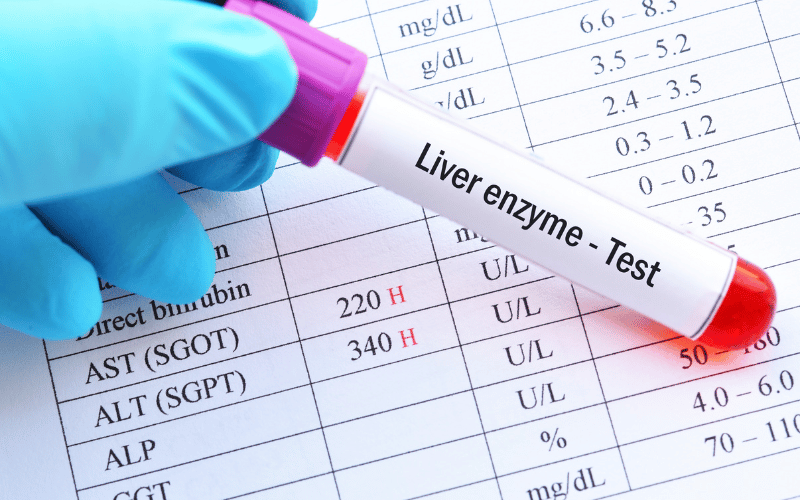10. Elevated Liver Enzymes: Reading the Signs

Elevated liver enzymes are a critical yet often unseen symptom of cholestasis. These enzymes, typically measured through blood tests, serve as indicators of liver health. In cholestasis, levels of enzymes such as alkaline phosphatase (ALP), alanine transaminase (ALT), and aspartate transaminase (AST) often rise, signaling liver distress or damage.
The elevation of these enzymes is particularly telling. ALP, for instance, increases when bile ducts are blocked. ALT and AST, on the other hand, rise when liver cells are damaged or inflamed. These changes in enzyme levels can be the first clinical indication of cholestasis, often before visible symptoms like jaundice appear.
What’s fascinating about these enzymes is their specificity and sensitivity. They can not only indicate the presence of liver issues but also help in pinpointing the type and severity of the condition. This makes them invaluable tools in the diagnosis and management of cholestasis.
While elevated liver enzymes are a critical diagnostic marker, they are not symptoms that individuals can detect on their own. Regular blood tests are necessary to monitor these levels, especially in individuals at risk for liver conditions. This underscores the importance of preventive health check-ups and early detection strategies.
In conclusion, elevated liver enzymes in cholestasis are more than just numbers on a lab report. They are vital clues to the health and functioning of the liver. Understanding and monitoring these enzyme levels is key to diagnosing and managing cholestasis effectively. (10)